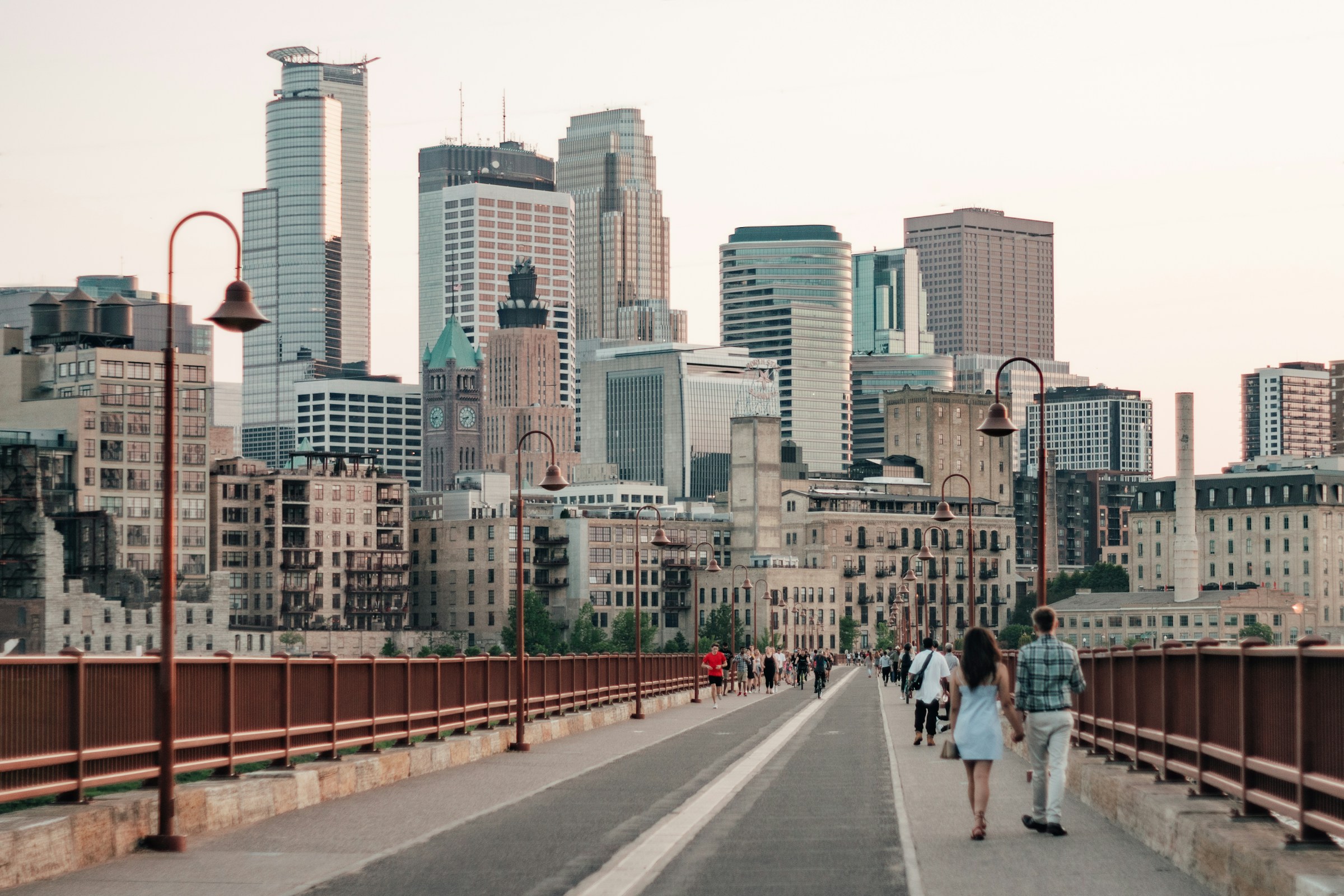Known as the “Land of 10,000 Lakes,” Minneapolis consistently ranks as the worst city for Black women to flourish financially. The bustling metropolis is the largest city in Minnesota. More than 60 percent of the population there is white while about 18 percent is Black. This is the same quaint, midwestern city that made national headlines in 2020 after the death of George Floyd. And, in the same year, made smaller rumblings in the media after the murder of grassroots activist and organizer Oluwatoyin Salau.
When assessing the livability of a city for Black women, a few key measures are access to jobs, equitable pay and health care. Here’s what Black women professionals based in Minneapolis had to say about what it’s actually like to live there.
Community in the City
Head coach of the Minnesota Vikings Cheerleaders, Jacie Scott, moved to the Twin Cities eight months ago. While most of her time so far has been spent in the cooler weather, she’s excited to get into the spring and summer to see what Minneapolis has to offer and build community.
Scott, who says she moved to Minneapolis with an awareness and mindfulness about the city’s history with racial injustice, has made connections with Black women through work.
“I honestly don’t know where I would be without [my coworkers], and I’m grateful for the connection we’ve formed in such a short amount of time,” she said. “However, I’ve found it difficult to engage with other Black women in the city and build community outside of work.”
Minneapolis native Symone Patton, agrees about the need for more sisterhood and fellowship between Black women. Patton works as a grant compliance manager at Minnesota Homeownership Center and also serves, alongside her husband, as the pastor of The Wave MN. She says she does not encounter many Black women outside of church on Sundays or for organized meetups.
“This is not a state where you always run into other Black women and just connect, begin conversing or form bonds,” she said. “There is value in the very essence of having women around you who look like you, can understand you, bring comfort to you and enjoy the simple things with.”
Nikki Fox, senior content strategist at Minna Studio, has lived and worked in Minneapolis for six years. Most of her friends in the city are Black women who she primarily met through Bumble BFF. Still, Fox feels like it requires a lot of effort to thrive in the city as a Black woman.
“Of all the places I’ve lived, I’ve found Minneapolis to be the most difficult place to build community,” she says. “I feel like I’m getting there now, but I still have friends who plan to move eventually because they don’t love living here as Black women.”
The Aftermath of George Floyd
The events of 2020 and the movement for racial justice uniquely impacted the Black residents of Minneapolis. Patton explained that the murder of George Floyd brought the Black community together.
“In the midst of travesty, there was a sense of community,” Patton says. “Black people came together with one mind and one mission, which caused a dismissal of small quarrels and a greater sense of understanding.”
Opportunities for Advancement
As far as professional advancement for Black women in Minneapolis, Patton says it requires knowing the right people. Opportunities typically come through connecting to women who are in a position to advocate for you.
“[Thriving] is an uphill battle sometimes, and I am constantly required to take an assertive approach to be heard and valued,” she says. “Although I have been in leadership for about five years, and I have a master’s degree, it is still a fight – I still am required to prove to the professionals that I am smart enough, worthy enough and skilled enough to manage and run in leadership.”
To further her professional advancement, Fox is a member of a Black-woman-owned co-working space called The Coven, which hosts professional development courses, community workshops and events.
Scott also believes there’s potential for professional advancement for Black women in Minneapolis and the surrounding area. She’s a part of an employee resource group that prioritizes the advancement of Black employees, as well as a community called The B Suite, which curates events for Black professionals. These spaces have kept her hopeful and motivated.
“There are opportunities out there but it might just require some intentional searching and connecting,” she says. “We need to be louder.”
